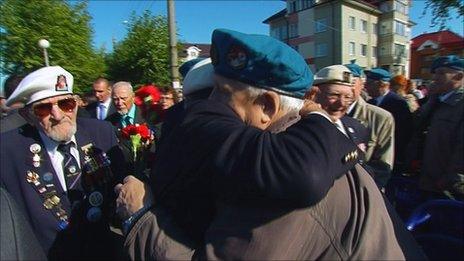Russian Ushakov Medals for Arctic Convoy veterans
- Published
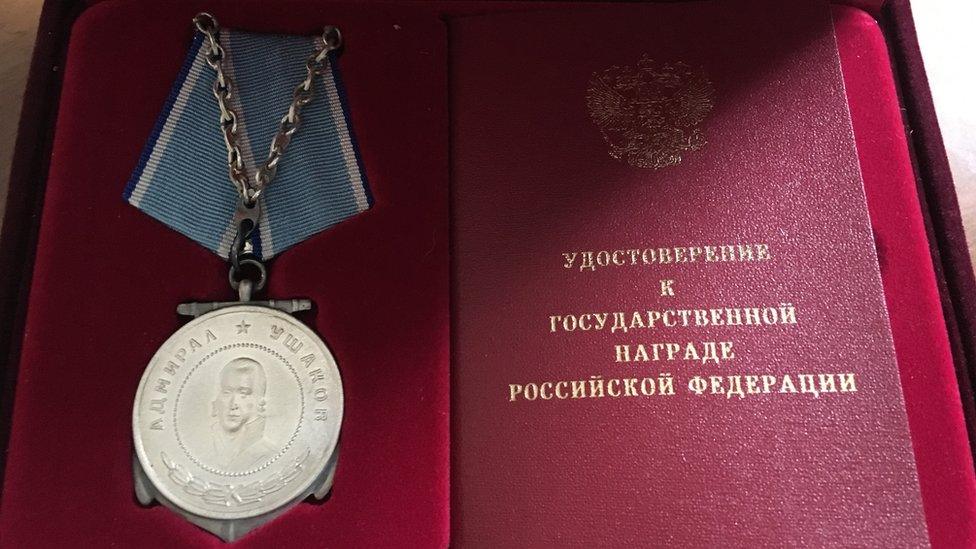
Konstantin Shlykov, from the Russian Embassy to the UK presented the Ushakov medals to the veterans
Five World War Two veterans have been honoured by Russia for their part in transporting crucial supplies.
Lt Cdr Ian Clive Macintyre, 97, was among five Guernsey residents given the Ushakov medal "for personal courage and valour shown".
He said while he was "obviously very honoured" he was "just one of thousands... I did my job just like everyone else did".
Lt Cdr Macintyre said: "The Russians have always been appreciative."
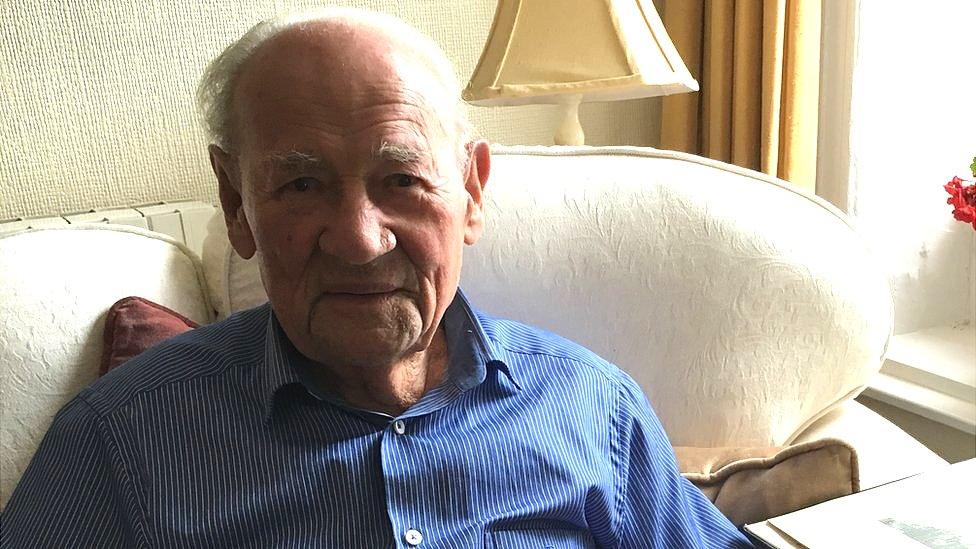
Lt Cdr Macintyre said the award was for the thousands who had faced the cold of the Arctic Convoys
"[This medal] is not really for me it's for the work that was actually done by everybody on the convoys."
Lt Cdr Macintyre, who served on HMS Nigeria, said the cold was the worst part: "It was a bit primitive early on because in the first convoys we had no clothing that was really suitable - a duffel coat, sea boats and what the dear ladies at home had knitted for us - woollen balaclavas."
The other four medal recipients were Charles Frederick Thornton Poynder, Harry Lawrence Wolley, Ragot Chatterton Wood and the late Frederick Levi Darby whose medal was presented to his widow.
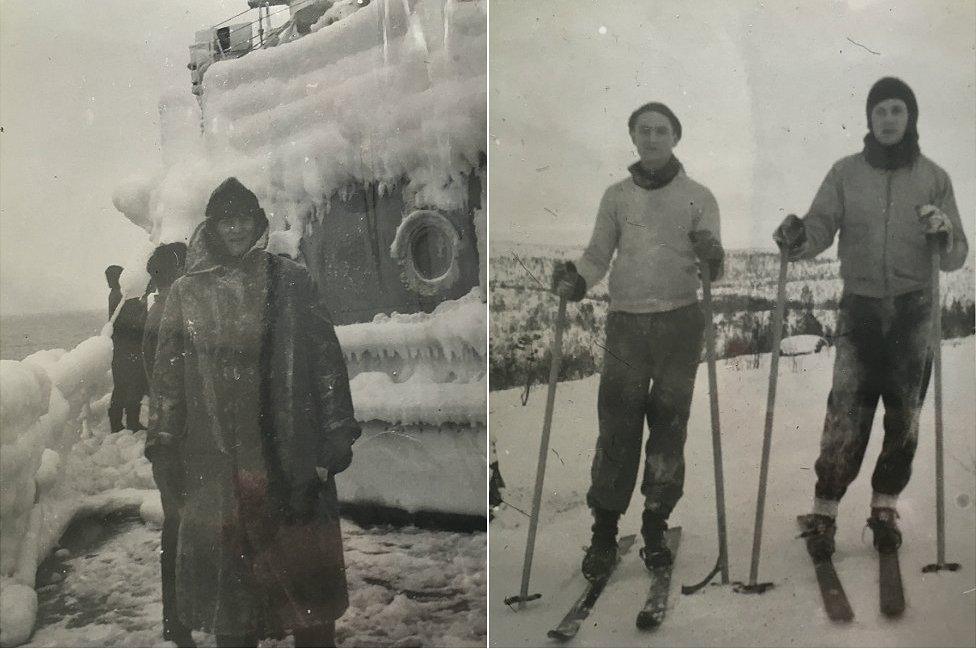
Ian Clive Macintyre said clothes to keep out the cold was at first primitive, but later improved

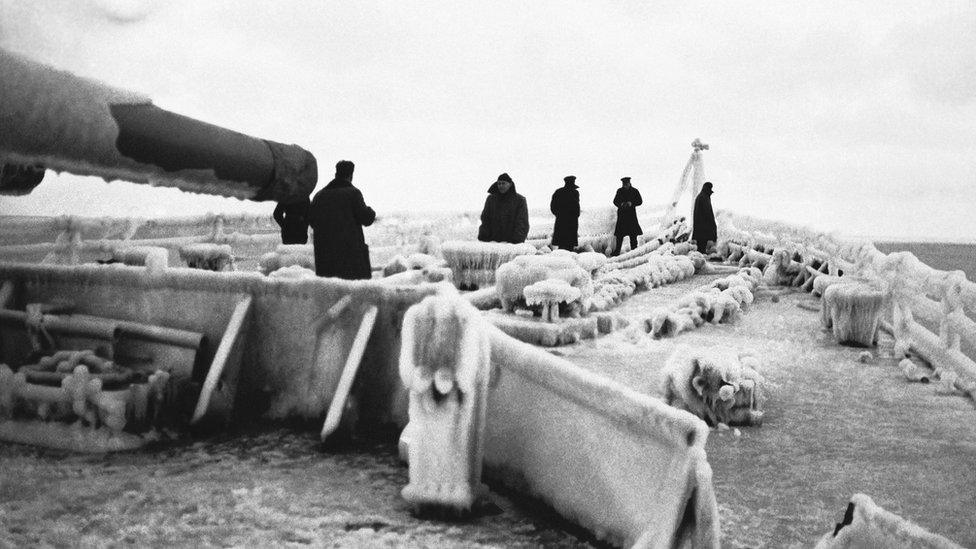
Ice on a British cruiser during escort duty on the northern convoy route to Russia
Arctic Convoys
The Arctic Convoys transported four million tons of supplies and munitions to Russia between 1941 and 1945.
A total of 78 convoys braved sub-zero temperatures and the German armed forces to get war supplies to the Soviet Union
The British Merchant Navy along with Russian, US, Canadian, Norwegian and Dutch merchant fleets were involved
By May 1945, the Arctic route had claimed 104 merchant and 16 military vessels
More than 3,000 Allied seamen lost their lives to the freezing conditions and attacks during the trips to ports in the Arctic Circle

The medal is named after Fyodor Ushakov, an 18th Century naval commander who never lost a battle and is the patron saint of the Russian navy.
It was created in 1944 and is awarded to veterans "for personal courage and valour shown during World War Two while participating in the Arctic Convoys".
- Published18 June 2015
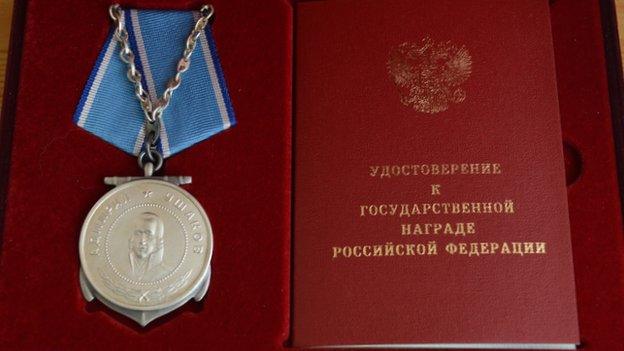
- Published9 October 2014
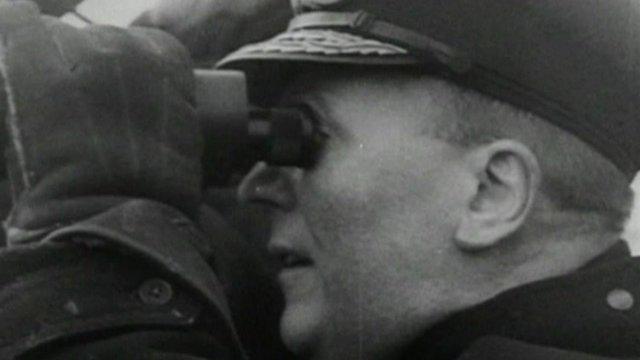
- Published28 May 2013
- Published26 February 2013
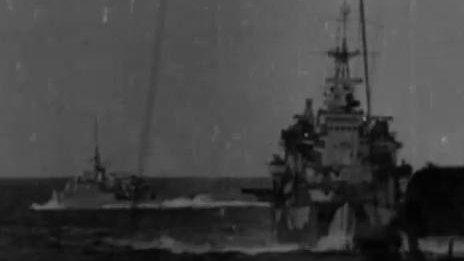
- Published31 August 2011
